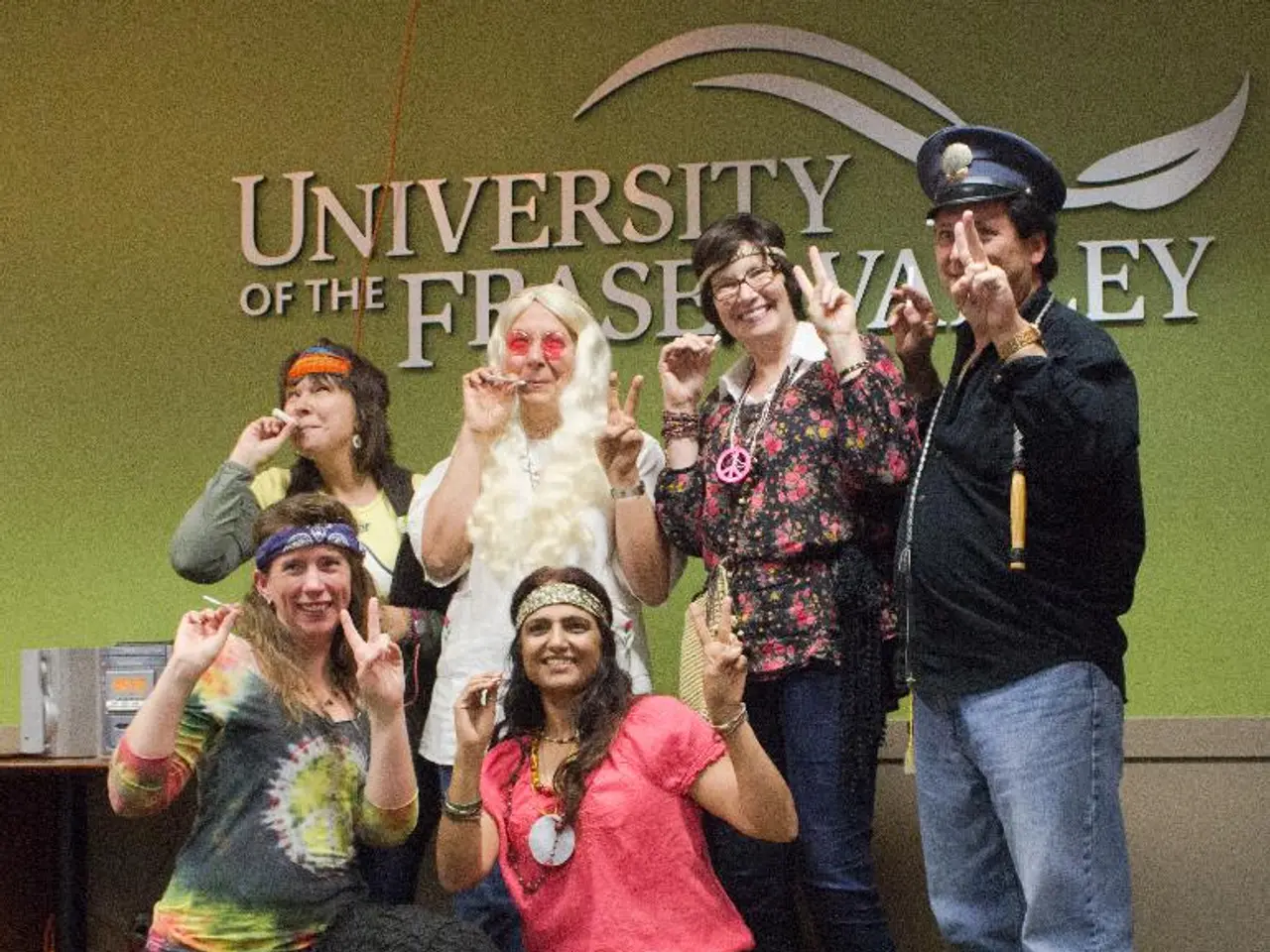Mastering 9 Key Principles of Social Intelligence for All
In the intricate world of human relationships, understanding and navigating social environments has become increasingly important. Dr. Daniel Goleman, in his book "Social Intelligence: The New Science of Human Relationships," offers a comprehensive approach to improving our social intelligence.
Social Intelligence (SI) is the ability to successfully build relationships and navigate social environments. At the heart of Goleman's approach lie five key competencies: mindfulness, self-awareness, emotional regulation, empathy, and social skills.
Mindfulness, as Goleman explains, involves paying close attention to our own emotions and those of others to develop deeper self-awareness and emotional control. Self-awareness, on the other hand, is about noticing our emotional patterns and how emotions influence our decisions and behaviors. Emotional regulation is all about managing impulses and reactions to maintain calmness, especially in challenging interactions. Empathy, a crucial aspect of SI, is about accurately reading other people’s emotions and understanding their perspective. Lastly, social skills encompass enhancing communication, conflict resolution, teamwork, and building trust through emotional connections.
These competencies align with Goleman’s broader emotional intelligence framework and can be improved with deliberate practice and attention to everyday social interactions. Viewing routine social encounters as regulatory experiences that influence brain and emotional patterns positively when approached with mindfulness and empathy is a key aspect of this approach.
Understanding emotional intelligence in the broader context of physical health and stress management also supports better emotional control and social engagement. Consistently applying these skills not just improves personal relationships but also enhances professional collaboration and influence.
Our brains play a significant role in social intelligence. Mirror neurons, for instance, unconsciously mimic the facial expressions of others, affecting our own moods. These neurons help us predict the behavior of people around us by subconsciously mimicking their movements. When we get a look from someone we find attractive, our brain secretes dopamine, a chemical that makes us feel pleasure.
However, not everyone is equally adept at social intelligence. The narcissistic, Machiavellian, and psychopath personalities, often referred to as the 'dark triad,' are characterized by impulsiveness, remorselessness, extreme selfishness, manipulation, and exploitation of others. Fortunately, Goleman argues that we are wired for altruism and that we are inherently good, but we sometimes forget how good it feels to be good.
Loneliness and weak relationships, on the other hand, are one of the major sources of stress, health problems, and depression. Therefore, cultivating strong relationships is not just beneficial for our social life but also for our overall wellbeing. A secure base, such as a place, ritual, or activity that helps us process emotions and occurrences, can help us recharge before interactions and process and learn from social encounters.
Dr. Baron-Cohen, another renowned figure in the field of social intelligence, devised the Empathy Quotient, a quiz to test empathy levels. Gravitating towards people whose moods we want to catch and adopting the emotions of others can give a new perspective and help others see that we are on the same page as them.
In conclusion, Goleman's approach to social intelligence combines neuroscience with practical exercises aimed at increasing awareness of both self and others to transform the quality of human relationships. By focusing on mindfulness, self-awareness, emotional regulation, empathy, and social skills, we can navigate social environments more effectively, build stronger relationships, and ultimately, improve our overall wellbeing.
Read also:
- Strategies for Mitigating Negative Feelings in Customer Interaction with Your Goods or Services
- Is it necessary for concerts to be so excessively loud that ear protection is essential?
- Director Celine Song defends her film 'Materialists' against accusations of elitism and classism.
- Pregnancy, according to the Bible, is defined as a state in which a woman carries a developing child in her womb.








